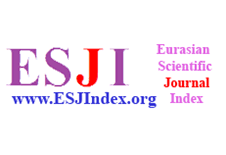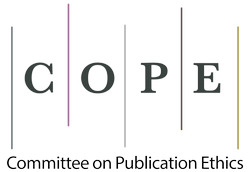GENDER DIFFERENCES IN LANGUAGE TEACHING AND THEIR PEDAGOGICAL IMPLICATIONS
Keywords:
foreign language teaching methodology, national education system, linguistic research, gender studies, language acquisition, gender equalityAbstract
This article analyzes the gender differences of language learners in learning foreign languages and the influence of these gender characteristics on the educational process. The article explores the human factor-centered approach to the study of language phenomena, its features and peculiarities in linguistic research in gender studies. The task of developing, improving, and optimizing methods of teaching foreign languages taking into account gender differences has been one of the most urgent problems of our national education system, and this article analyzes these problems of the education system from the point of view of pedagogical importance.
Downloads
References
O'zbekiston Respublikasi Prezidentining "O'zbekiston Respublikasini yanada rivojlantirish bo'yicha Harakatlar strategiyasi to'g'risidagi Farmoni//Xalq so'zi,2017 yil. 8 fevral №28 (6722)
Sh. Mirziyoyev. "Erkin va farovon, demokratik O'zbekiston davlatini birgalikda barpo etamiz" O'zbekiston Respublikasi Prezidenti lavozimiga kirishish tantanali marosimiga bag'ishlangan Oliy Majlis palatalarining qo'shma majlisidagi nutqi. "O'zbekiston" NMIU, 2016
Аткинсон Р. Человеческая память и процесс обучения : пер с англ. / Ричард Аткинсон ; общ. ред. Ю. М. Забродина, Б.Ф. Ломова. М. : Прогресс, 1980. - 528 с. - ( Общественные науки за рубежом. Психология).
Балина Т. Н. Психофизиологические характеристики детей 6-7 лет, обучающихся иностранному языку в период адаптации к усложненной школьной программе : дис. канд. психол. наук / Т. Н. Балина ; Рост, гос. ун-т. Ростов н/Д, 2002. - 123 с.
Воронина О.А. Теоретико-методологические основы гендерных исследований // Теория и методология гендерных исследований. Курс лекций / Под общ. ред. О.А.Ворониной. – М.: МЦГИ – МВШСЭН – МФФ, 2001.
Рогова Г. В. Методика обучения английскому языку на начальном этапе в средней школе. М. : Просвещение, 2000. 232 c.
Хуторской А. В. Ключевые компетенции как компонент личностно ориентиро-ванной парадигмы образования // Народное образование. 2003. №2. 103 c.
http:// www.aahb.org/
Published
Issue
Section
License
Copyright (c) 2023 Social science and innovation

This work is licensed under a Creative Commons Attribution-NonCommercial-NoDerivatives 4.0 International License.


















